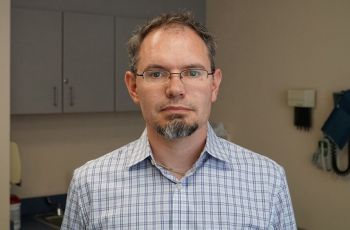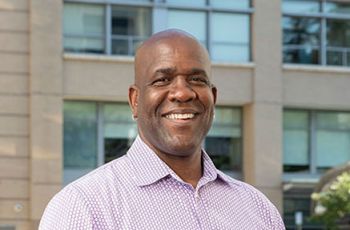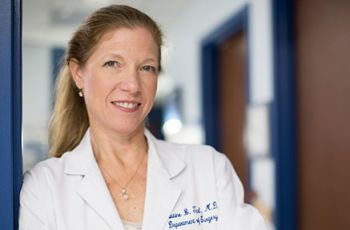News Archive
Friend, alumnus, and colleague Carlos Silva, MD ’60, RESD ’66, passed away on Oct. 13, 2019.
The GW PA Program celebrated the dedication and service of some of its faculty and students at the PA Week Reception in October.
A research collaborative including the GW, Transcultural Psychosocial Organization Nepal, Tribhuvan University Teaching Hospital, Epidemiology and Disease Control Division of the Ministry of Health and Population of Nepal, Duke University, and King’s College London will investigate the efficacy…
In a research paper in the American Journal of Men’s Health, Robert Turner II, PhD, assistant professor of clinical research and leadership, sought to expand upon investigations into risks for depressive symptoms in former athletes in the NFL.
Lauren Kenworthy, PhD, professor of psychiatry and behavioral sciences and of pediatrics, spoke to The New York Times for an article on the judgement mothers with autism face while dealing with their diagnosis and also advocating for their own children who have been diagnosed.
Rebecca Kaltman, MD, director of the Ruth Paul Cancer Genetics and Prevention Service at the GW Cancer Center and assistant professor of medicine, spoke to Romper for an article on the BRCA genes and breast cancer.
Christine Teal, MD, director of the Comprehensive Breast Center at the GW Cancer Center, spoke to WTOP for an article on breast cancer detection and prevention. WTOP also quoted Teal in an article on technology used for early detection.
In a new paper published in Seminars in Arthritis and Rheumatism, researchers from GW evaluated the long-term outcomes for patients with juvenile idiopathic inflammatory myopathies.
Four students from the Physician Assistant Studies Program at the George Washington University School of Medicine and Health Sciences are participating on Students Board Committees with the AAPA Student Academy.
Lopa Mishra, MD, director of the Center for Translational Medicine at the GW Cancer Center and professor of surgery, Shuyun Rao, PhD, assistant research professor of surgery, and others published research in the journal Gastroenterology finding a connection between bacteria in the…





